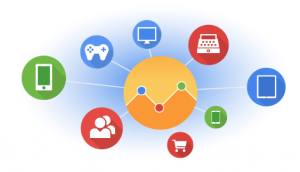 It may seem an eternity ago that Universal Analytics was released out of beta, ensuring that the new methodology was fully functional with all features fully implemented. April 2014 capped the start of a real shift in how the future of analytics is shaped.
It may seem an eternity ago that Universal Analytics was released out of beta, ensuring that the new methodology was fully functional with all features fully implemented. April 2014 capped the start of a real shift in how the future of analytics is shaped.
Since the end of the Q1 2014 Google has made a great effort to make the transition from older analytics methodologies to Universal Analytics as easy as possible. You may well have already noticed that most if not all of analytics properties have been auto updated to Universal Analytics within the interface. It is important to note that although the interface has been updated this does not mean the transition to Universal is complete. Additionally the only option when creating a new web property within analytics is now Universal Analytics.
If you havent already updated your tracking code to the Universal Analytics version, dont panic there is still plenty of time to plan and implement this methodology. Google has explicitly said that the old versions of analytics will not be fully deprecated until Q4 2016 and will still continue to push data into analytics until that point. However dont rest on your laurels there are real high quality benefits to changing to the Universal Analytics methodology as soon as possible.
Multiple devices, sessions with User ID
If you have a unique ID available in a session you can utilise this to associate multiple sessions and all activities within those sessions. When a hit is sent with a User ID all data is attributed to a single user in your reports. This opens up the possibility of Cross-Device reports and a more accurate user count.
Collect data from any digital device
Universal Analytics as a methodology contains three additional tracking codes that can be implemented to meet specific technical needs. The analytics.js library should be used for websites, the Google Analytics SDKs for mobile app tracking and the Measurement protocol for any other digital devices.
More accessible configuration options
Universal Analytics provides more configuration options controllable from with the Google Analytics interface. This takes away the need for development and frees up resource. For example you can manage organic search sources, exclude referral traffic and set your session timeout parameters.
Custom dimensions and metrics
Custom dimensions and metrics allow you to define and create your own. Use them to collect data that Google Analytics doesnt already automatically collect, for instance you could use it to collect data about the payment type of a transaction, or to assign particular leads to a specific department or salesperson.
Enhanced Ecommerce
Ecommerce tracking has now been supercharged with the introduction of Enhanced Ecommerce. Tagging your site with the ec.js plugin allows for additional insight into users shopping and purchasing behaviour and the overall economic performance of your products.
Stay up to date
Updating to universal analytics means that as well as the standard reports you are already using, a whole range of new features, reports and tools become available. Also any new features and product updates from Google will only be available to Universal Analytics web properties.
Implementing Universal Analytics need not be a complicated process as long as it is well scoped and not rushed the transition should be seamless. If you find that you need help with or simply cant find a spare minute to do this, our Analytics consultancy team are able to guide you through this process. Contact us today and a tailored analytics migration plan can be put together for you.


